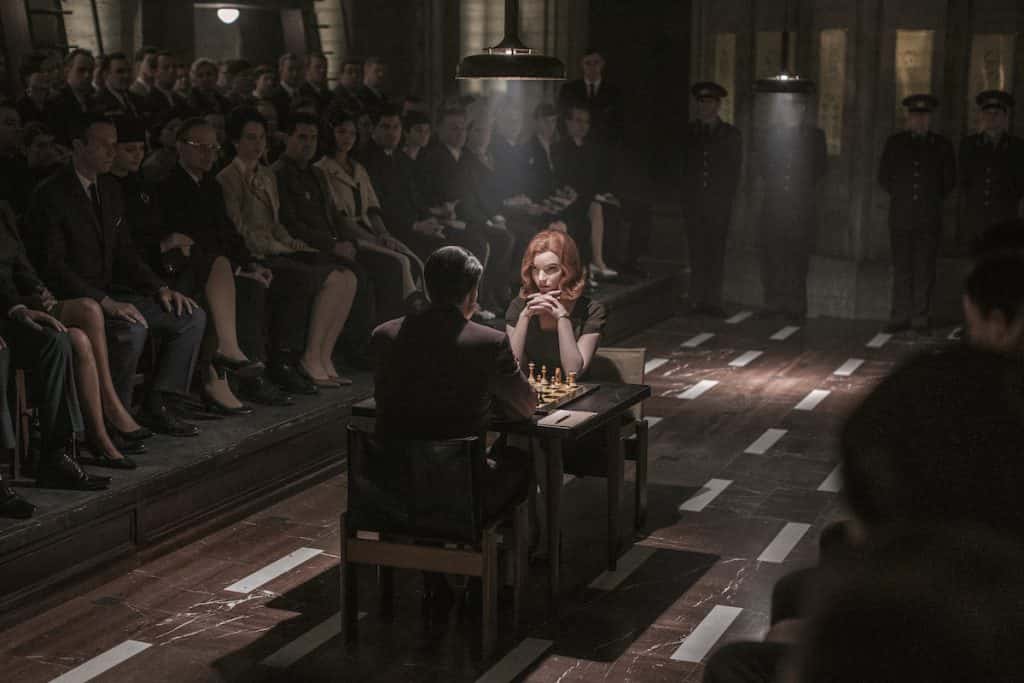TV Review: The Queen’s Gambit
1st March 2021
Copyright: Netflix
Surely, the only reason a Netflix mini-series about chess has had such a welcoming embrace from audiences is because they have simply run out of content to view. Any smattering of effective marketing that had the streaming conglomerates logo on it was lapped up with relative ease. The Queen’s Gambit must surely have been buoyed by this relationship with instant gratification and the inevitable rise of streaming. This could not have worked on a regular television broadcast schedule, the desire of Netflix thus far is one of binge-worthy content, and they seem to have managed that, broadly, with an adaptation of Walter Tevis’ novel.
With the story of Beth Harmon brought to life by Anya Taylor-Joy, it is reassuring to see that her shaky rise to prominence is not without merit. Her roles thus far have left much to be desired, Playmobil: The Movie not quite the high point anyone would hope for, The Queen’s Gambit gravitates towards greatness, but is just shy of such a marker. A great lead performance makes the most of this material, though, and the fastidious nature of Taylor-Joy and director Scott Frank make for a delightful piece. It is through their efforts together that they make chess interesting. A laborious task indeed, but one they struggle through with incredibly charged energy, performance and direction that grapple the new age of the miniseries, setting a benchmark for how quality and consistency can live in equilibrium with one another.
Supporting performers are crucial here, but it is at these moments that the series crumbles. Harry Melling and Thomas Brodie-Sangster hang around for a handful of episodes, but neither are articulate or responsive enough. It is no fault of their own. Their one-note, part and parcel character displays are a difficult caricature to break free from, but they serve the leading performance well, as is the necessity for such roles. Bill Camp shines as the early inspiration, dropping out relatively early on into the series, but his presence is lacking in the later moments, either through impact or physical existence. Marielle Heller and Taylor-Joy spend much of their time covering these weak spots.
By the end, though, The Queen’s Gambit is a relatively enjoyable bit of entertainment that does little with its themes of addiction, but much with its chess. A story that comes together with sickly, predictable perfection is preceded by strong performances and an oddly compelling narrative. It is down to the performances, the recurring characters that come and go through the years we spend watching Beth Harmon deal with her downfall. While the final episode feels like an inevitable rush job attempting to finalise the story so far, it is an astute piece of drama, one that will linger on the mind for an acceptable length of time. It is, for sure, some of the best content Netflix has made. The bar is low, but The Queen’s Gambit vaults over anyway.
![]()


